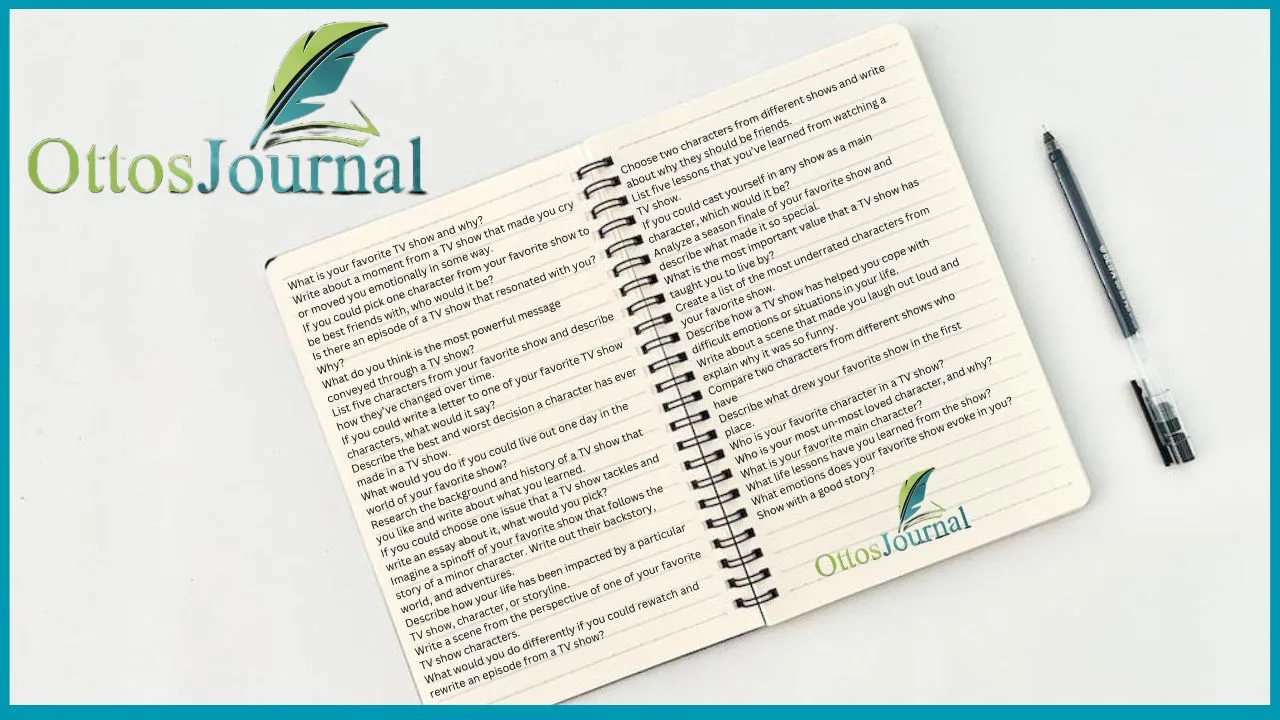Are you an aspiring poet seeking inspiration to unleash your creative prowess? If you’ve ever found yourself staring at a blank page, desperately trying to find the perfect words, then you’re not alone. The world of poetry can sometimes be as vast as it is intimidating, and that’s where poetry prompts come to the rescue. So what are poetry prompts? In this blog post, we’ll delve into the world of poetry writing prompts, their types, how to use them effectively, and the benefits they offer to give you creative writing ideas.
What are Poetry Prompts?
At their core, poetry prompts are creative stimuli designed to jumpstart your imagination and writing skills.
These prompts act as guiding themes, words, or scenarios that offer you a starting point for crafting your unique piece of poetry.
Imagine them as keys that unlock the doors of your creativity, allowing your thoughts to flow freely onto the page.
What are the Types of Poetry Prompts?
Acrostic Poetry Prompts:
These prompts involve using a specific word as the basis for your poem. Each line or stanza starts with a letter from the chosen word, and these letters collectively form the word vertically when read in sequence.
Visual Prompts:
Visual prompts could be images, paintings, or photographs that inspire you to create poetry. They often evoke emotions and feelings that can be beautifully translated into words.
Sensory Prompts:
These prompts focus on engaging the five senses – sight, smell, touch, taste, and sound. They encourage you to describe experiences or sensations in a vivid and evocative manner.
Word or Phrase Prompts:
A single word or a short phrase can spark a world of inspiration. These prompts challenge you to weave a poem around a central concept or theme.
First Line or Last Line Prompts:
Begin your poem with a given first line or conclude it with a specific last line. These prompts set the tone and direction for your creative exploration.
What are the Sources of Poetry Prompts?
Journal Entries and News Articles:
Draw inspiration from personal journal entries or the latest news articles. The mundane and extraordinary events of life can serve as excellent prompts.
Nature and the Outdoors:
Nature’s beauty and unpredictability can ignite your imagination. Whether it’s a serene landscape or a stormy sky, nature offers endless poetry possibilities.
Personal Memories:
Your own experiences, both joyous and challenging, can be transformed into heartfelt poetry. Revisit cherished memories or reflect on past lessons.
Word Association:
Start with a random word and let your mind wander. Associate the word with related concepts, feelings, or images to craft a unique poem.
How Do You Write a Poetry Prompt?
Choose a Theme or Concept:
Identify a central theme or idea you want to explore. This could be love, loss, nature, or any other emotion or concept.
Create Open-Ended Questions:
Frame questions that encourage thinking beyond the obvious. For instance, “What does happiness feel like?” or “Describe a moment when time stood still.”
Use Specific Imagery:
Incorporate vivid and specific imagery that evokes emotions. The more detailed your prompt, the richer the poems will inspire.
How Do You Use a Poetry Prompt?
Using poetry prompts is a great way to flex your creative muscle and explore new writing styles. Here are some tips for effectively using poetry prompts:
Let Your Imagination Run Wild:
Read the prompt and allow your mind to wander freely. Don’t rush; take your time to visualize and feel the scenario or concept.
Explore Different Perspectives:
Look at the prompt from various angles. Consider different viewpoints, emotions, and even voices to bring diversity to your poetry.
Engage the Five Senses:
Use the prompt to awaken the five senses. Describe what you see, hear, taste, touch, and smell to create a multi-dimensional poem.
Don’t Overthink:
Allow your first instinct to take charge. You can always refine and edit later, but when it comes to creativity, it’s best not to overanalyze in the initial stages.
What are the Benefits of Using Poetry Prompts?
Here are some of the benefits of using poetry prompts:
Overcoming Writer’s Block:
Poetry prompts serve as a lifeline for those moments when creativity seems to be on vacation. They provide the nudge needed to break through the mental barrier.
Enhancing Writing Skills:
Regularly using prompts can help improve your writing skills. They encourage experimentation with different styles, forms, and tones.
Diverse Exploration:
Prompts push you out of your comfort zone, urging you to write about topics or styles you might not have considered otherwise.
Expanding Vocabulary:
Forcing yourself to find the right words and phrases can help expand your vocabulary. This makes you more comfortable with exploring various writing techniques.
Refining Editing Skills:
You’re likely to naturally produce descriptive pieces of poetry, but it’s all about refining them into masterpieces. This is where your editing skills come in, and prompts can help strengthen them.
Igniting Creativity:
Above all, poetry prompts are meant to light the creative spark within you. They offer endless possibilities for exploring feelings, imagination, and inspiration.
What are the Risks of Using Poetry Prompts?
Lack of Authenticity:
Relying solely on prompts might lead to poems lacking personal connection or authenticity. Balance prompt-based writing withdrawing from your own experiences.
Dependence on External Stimuli:
While prompts are fantastic, relying solely on them might hinder your ability to generate ideas independently.
Practice regularly without prompts to become more resourceful.
Restriction of Creative Freedom:
Be aware that too many rules and restrictions can stifle creativity and lead to generic poetry. Allow yourself the freedom to explore beyond the boundaries of the prompt.
Poetry prompts provide a glimpse into your creative world, sparking ideas and unleashing your imagination. Use them to your advantage and nurture the poet within you!
Common Mistakes to Avoid When Using Poetry Prompts
Here are five common mistakes aspiring poets should avoid when using prompts.
Sticking Too Closely to the Prompt:
Don’t let the prompt limit your creativity. Let your poem evolve naturally, even if it takes you in unexpected directions.
Ignoring Emotion and Depth:
Focus on conveying genuine emotions and depth in your poem. Don’t get caught up in superficiality.
An acrostic poem based solely on prompts tends to lack emotional appeal.
Overthinking the Process:
Writing poetry shouldn’t be a laborious task. Allow yourself to trust the flow of your thoughts and let them guide you to create something meaningful.
Not Experimenting:
Challenge yourself to explore different forms, genres, and themes. Don’t be afraid to be bold and take risks with your poetry.
Giving Up Too Easily:
Writing is a skill that’s honed through practice and perseverance. Don’t get discouraged if you don’t get your desired results immediately. Celebrate small successes and keep striving to improve.
Bottom Line
Poetry prompts are bridges that connect the poet’s imagination to the realm of creativity. They offer a starting point, a seed from which vibrant poems can blossom.
Creative poetry writing prompts stimulate the mind and urge it to explore uncharted waters. So go ahead, take a leap of faith and let your creativity be your guide.
Writing prompts are perfect for those who wish to nurture their passion for poetry but lack the inspiration or courage to take the plunge. If you’re looking for a way to unlock your creative genius, look no further than poetry prompts!
A poem inspired by a prompt can be a powerful expression of emotions, thoughts, and ideas. So take the challenge – explore the depths of your creativity and create something beautiful!
So, grab that pen, embrace the challenge, and write poetry that will take your breath away!





